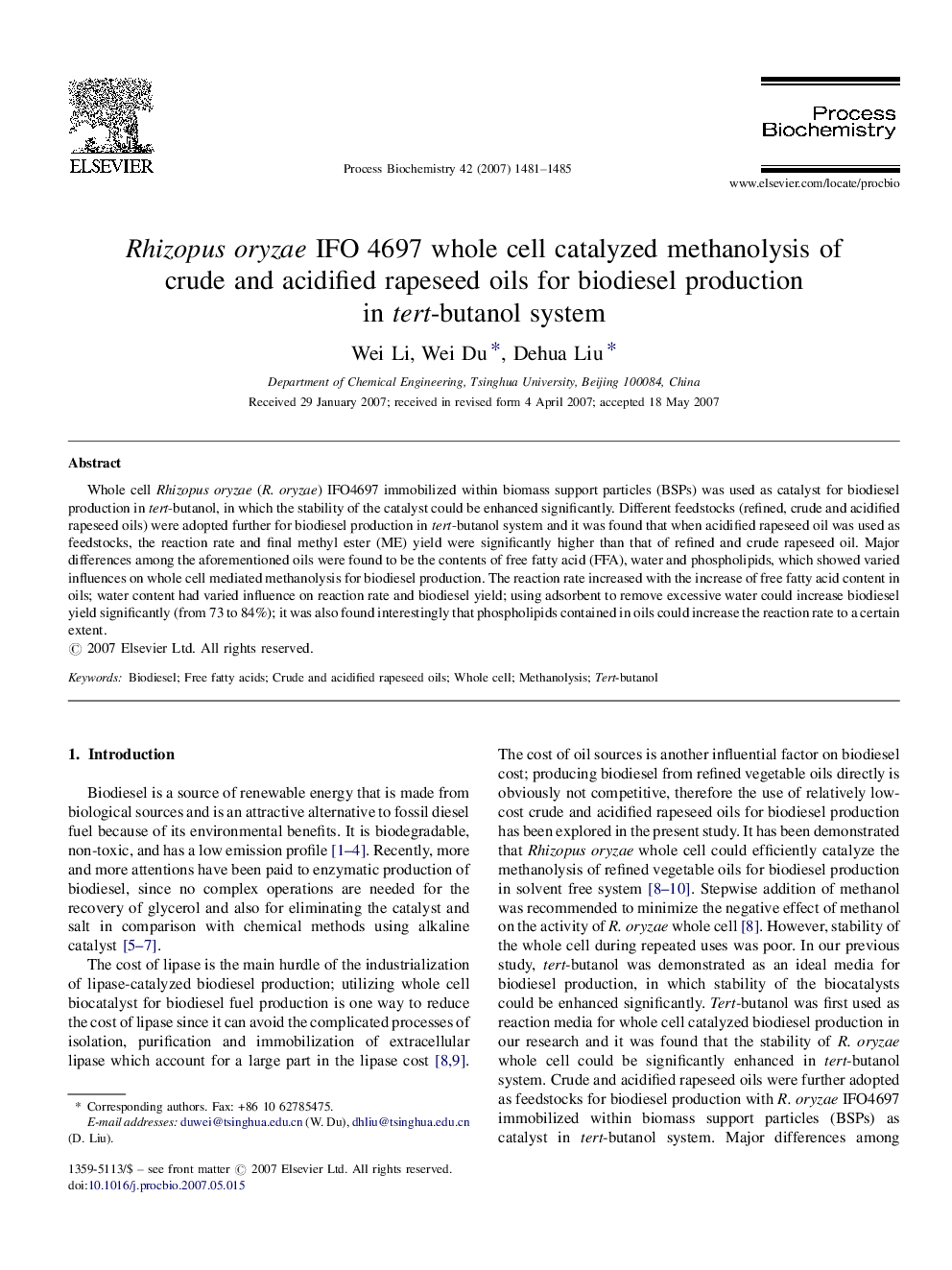| Article ID | Journal | Published Year | Pages | File Type |
|---|---|---|---|---|
| 35711 | Process Biochemistry | 2007 | 5 Pages |
Whole cell Rhizopus oryzae (R. oryzae) IFO4697 immobilized within biomass support particles (BSPs) was used as catalyst for biodiesel production in tert-butanol, in which the stability of the catalyst could be enhanced significantly. Different feedstocks (refined, crude and acidified rapeseed oils) were adopted further for biodiesel production in tert-butanol system and it was found that when acidified rapeseed oil was used as feedstocks, the reaction rate and final methyl ester (ME) yield were significantly higher than that of refined and crude rapeseed oil. Major differences among the aforementioned oils were found to be the contents of free fatty acid (FFA), water and phospholipids, which showed varied influences on whole cell mediated methanolysis for biodiesel production. The reaction rate increased with the increase of free fatty acid content in oils; water content had varied influence on reaction rate and biodiesel yield; using adsorbent to remove excessive water could increase biodiesel yield significantly (from 73 to 84%); it was also found interestingly that phospholipids contained in oils could increase the reaction rate to a certain extent.
